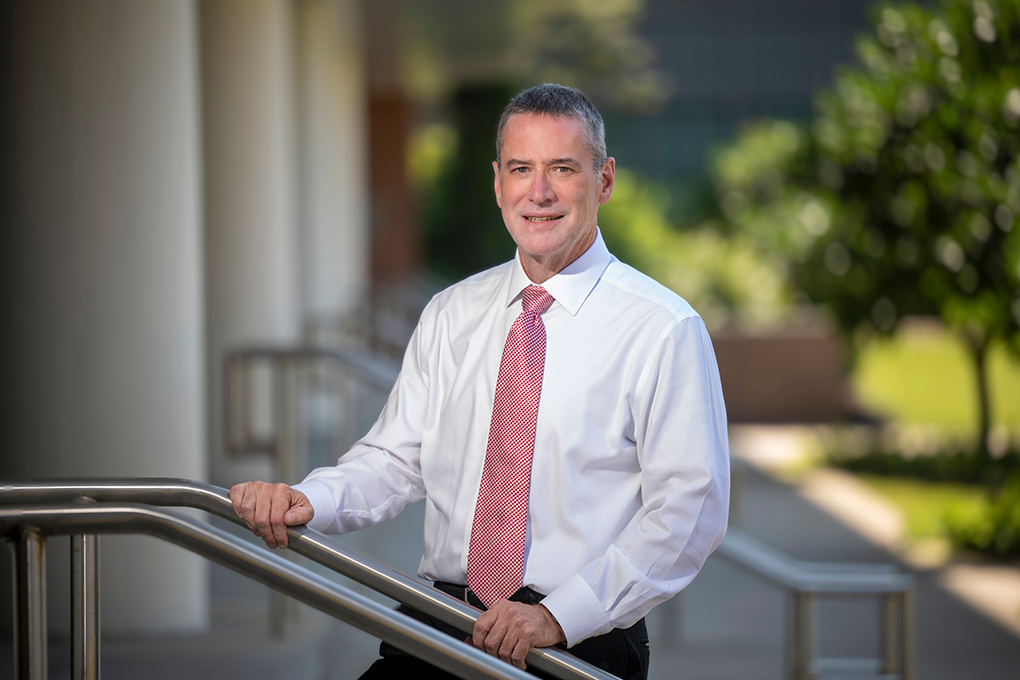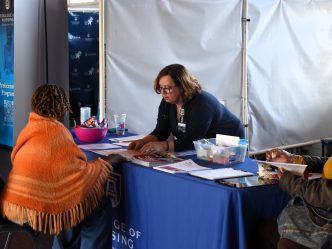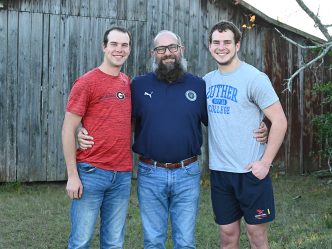In today’s world, artificial intelligence is everywhere – at home, at work, in our pockets. We see it in virtual assistants like Siri and Alexa, online shopping suggestions, content creation, language translation, chatbots and cybersecurity systems.
But what really signals the dawn of a new age is AI’s quickly growing role in health care. It can drastically aid with medical diagnoses, analyzing patient data, setting up new therapy trials, curating possible treatment pathways and advancing education for health care professionals and students.
It’s why the Medical College of Georgia at Augusta University established the Department of Artificial Intelligence and Health last August to bridge the gap between health care and technology while advancing the education, funding, research and economic goals of the university.
Who better to lead that charge than someone who has over 30 years of experience in the biomedical informatics field?
Jeffery Talbert, PhD, has spent the last two decades of his career in various leadership positions at the University of Kentucky, including chief of biomedical informatics in the Department of Internal Medicine and director of the Institute for Biomedical Informatics.
His work has been published more than 260 times, he’s led more than 100 funded research projects totaling more than $130 million and he has a laundry list of projects he’s currently working on.
And now, he is the inaugural chair of the Department of AI and Health at MCG, with an academic appointment as professor of Artificial Intelligence and Health.
“I never thought I would make a big move like this, but it’s just the right time, right place,” Talbert said.
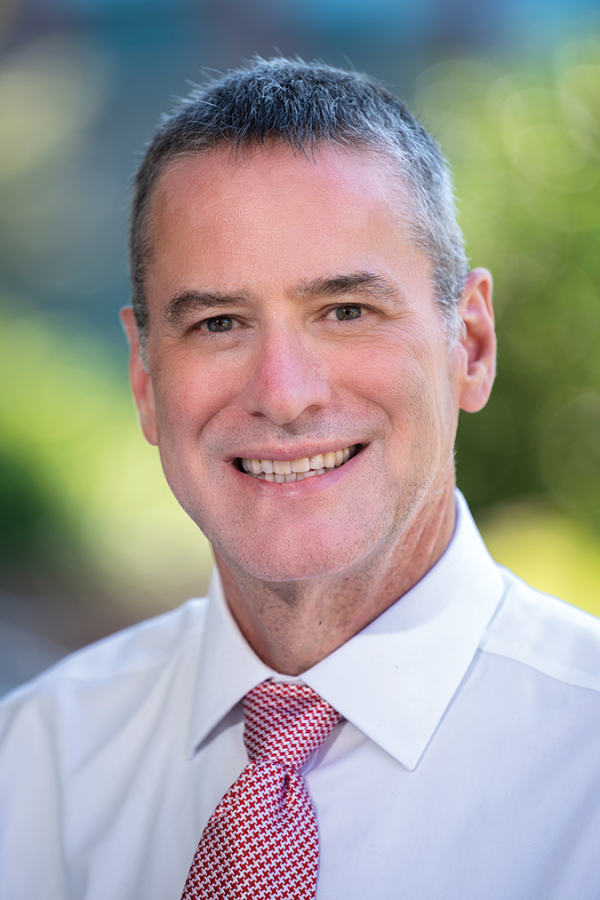
He will also be joining seven other Augusta University faculty members as a Georgia Research Alliance Eminent Scholar, an honor given to high-achieving researchers who attract private and public grants.
“It’s quite an honor. I was really kind of shocked about it, and it’s exciting being able to bring that to AU and MCG,” Talbert said. “It’s great. I’m hoping that it will help provide some resources to make my research go faster and do more things here.”
In his new role, Talbert will grow his team, lead education and research efforts, build cross-disciplinary programs, strengthen partnerships, seek funding and work with Wellstar leaders to develop a research data warehouse.
Another goal he has for MCG is something he’s already done before: obtain an NIH Clinical and Translational Science Award to support groundbreaking achievements in research and technology. At the University of Kentucky, he was the director of biomedical informatics for a $16.6 million CTSA grant supporting the KY Center for Clinical and Translational Science, which aimed to improve health in Kentucky by promoting innovative and collaborative research to address rural health needs.
While this may seem like no small undertaking, Talbert’s experience in his previous roles has prepared him to stretch the new department’s reach and mentor the next generation of professionals at the same time. He encouraged personnel from all colleges in the university to elevate their work using AI tools that the bioinformatics institute offered – something he wants to translate over to MCG and Wellstar.
“That’s the hope. I’ve done it once and want to do it again,” he said. “Part of what really attracted me to MCG was the relationship with Wellstar because it’s pretty new, and Wellstar is learning how their data can drive research. They’re very interested in using their multi-hospital system’s data to support research projects and commercialization, which would generate value and improve health. I think that there’s so much potential there, and that’s really exciting.”
For MCG to collaborate with Wellstar in this way, the hospital needs secure research data infrastructure with defined governance.
“There needs to be a place where investigators go to ask for data, and usually there’s a data governance process or committee for it,” Talbert said.
As the chair of the Research Data Governance Committee at UK, Talbert had researchers pitching ideas to him and asking for data to support their trials.
“If we’d done something similar before, it was an easy process to grant them that data. If it was brand new, we had to make sure it fit with the mission of the university so everybody felt more confident that the project was appropriate, there wasn’t going to be a data breach, and the data would be used responsibly. I think that’s where we are now with Wellstar and MCG,” he said. “We are developing the governance and infrastructure to support research.”
Part of the plan is to create a research data warehouse. This will allow local patients to join multi-site clinical trials, make it easier for internal investigators to conduct their own trials and improve access to treatments.
“Let’s say, right now, somebody in the Georgia Cancer Center needs data to support a new clinical trial. If we don’t have enough patients here, they’ll work with another cancer center,” Talbert said. “Well, once we join these multi-site research networks, that research could potentially be done as part of a group, so that our investigators drive the innovation here, and we could lead the trials. It really benefits us in a lot of ways, but I think step one is getting us into these research networks.”
Talbert’s personal research focuses on big data analysis of health care outcomes, specifically for substance abuse disorder.
He recently served as the co-director of the Data, Informatics, and Statistics Core on the Kentucky HEALing Community Study, an $87 million NIH grant that used evidence-based interventions to reduce opioid overdoses and improve treatment outcomes. To do this, his team assembled data on more than 100 measures across communities in KY.
After that study, they applied that data to a separate $5 million NIH grant-sponsored study that Talbert is co-leading called the RADOR system in Kentucky, or Rapid Actionable Data for Opioid Response, which uses AI models to predict county-level overdoses up to three months ahead of time.
Now that he’s in Georgia, he wants to implement a version of RADOR that will predict overdose hot spots in these counties. To do this, he’ll take data gathered by the state government and plug it into an AI prediction model to predict future changes in opioid overdose trends, helping state and local public health agencies in more ways than one.
“If we predict an increase in a county, they can distribute more naloxone, they can activate more local resources to potentially find out if there’s a new source of fentanyl in town, and they can try to intervene to prevent the overdoses from happening. The whole purpose of our system is to be able to predict and then intervene before the overdoses occur,” he said. “One of my goals is to bring this type of system to Georgia over the next year, and we plan to write a follow-on grant to our current grant to expand the RADOR system into Georgia.”
Talbert explained that using predictive AI is very similar to using other statistical models that have been predicting outcomes through data analysis for many years.
However, AI faces criticism, particularly in health care. A primary concern is bias, which Talbert said his team actively addresses.
“Anyone who has used AI chat tools knows they will always give you an answer, but is it a good answer, and is it ethically sound?” he said. “One way we guard against bias is to build and test models using local data. We can’t take generic data and apply it locally and expect the best results. We have to use our own data, train our own models and then predict our patients’ outcomes.”
“This approach helps us avoid bias and makes our data more valuable. Additionally, continuous monitoring of model performance across different groups helps ensure that AI models maintain fairness over time as they encounter new patient populations,” he continued.
Talbert also wants to address fears that AI could replace health care professionals.
“That’s absolutely not true. The models are nowhere near being able to do that. They can certainly assist physicians, but we already had other tools that could assist physicians, too. We have clinical decision support tools, but it’s still the physician on duty’s responsibility to make that decision – the model just tells them what it looks like to the software.”
“From that standpoint, I don’t think people should be worried their doctor’s not going to be in control anymore,” he continued. “The doctors are still in control; we’re just trying to help them do their job more efficiently. Since COVID, there’s a lot more physician burnout; they’re overworked. They have to see too many patients a day to do the things they need to do. AI tools are going to help them do that more efficiently, so that’s the hope of what we want to do.”
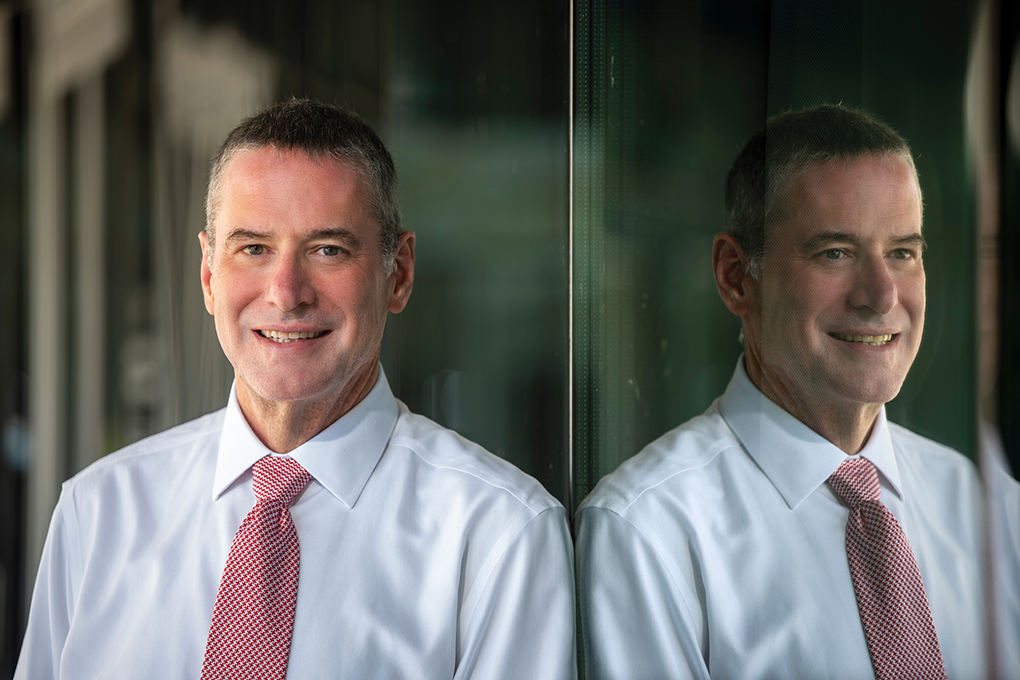
Talbert’s credentials and talents speak for themselves and show that his aspirations for the Augusta University community will contribute to its goals of enrolling 16,000 students by 2030 and raising MCG to a top 60 medical school in R1 NIH funding by the same year.
“I know Dr. Talbert will be a perfect addition to our team because he shares the same passion for impactful work and commitment to improving lives that all of our incredible faculty do,” said MCG Dean David C. Hess, MD. “As we continue our transition to the EPIC EMR system, his expertise will certainly be invaluable in helping harness patient data to drive impactful research, develop new treatments and improve patient care.”
Talbert officially started the job on Sept. 1 and is excited to hit the ground running in what will surely be a giant leap forward for MCG’s local, statewide and national standing.
“Step one is trying to get the regulatory and the governance pieces going, and then steps two and three are to hire faculty, hire staff and start building this resource at AU for our faculty and investigators to develop innovation here,” he said.
 Augusta University
Augusta University
